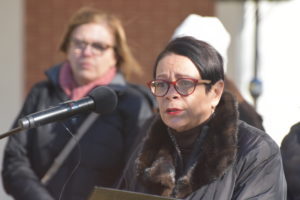 On Thursday, I joined with colleagues from nearly 20 urban schools across Pennsylvania to advocate for our students, teachers, staff and families. Specifically, we called on our leaders in Harrisburg to reform the funding and oversight of charter schools and cyber charter schools in Pennsylvania. Below are my remarks, with some minor edits for space.
On Thursday, I joined with colleagues from nearly 20 urban schools across Pennsylvania to advocate for our students, teachers, staff and families. Specifically, we called on our leaders in Harrisburg to reform the funding and oversight of charter schools and cyber charter schools in Pennsylvania. Below are my remarks, with some minor edits for space.
Thank you for taking time to join us in the School District of Lancaster. I am here as not only a local educational leader, but also as a member of the Pennsylvania League of Urban Superintendents – or PLUS. We are a caucus of the Pennsylvania Association of School Administrators. Across the state, at this moment, 19 of our PLUS school districts are hosting press conferences just like this.
In Pennsylvania, nearly 40 percent of the state’s low income students are concentrated in just 40 of our state’s 500 school districts. One in every seven students in K-12 public systems attend an urban school district.
Urban school districts are not just the big-city districts like Philadelphia and Pittsburgh—they are districts like ours, where there is a higher concentration of population and where we have a higher number of students coming from low-income families. In the School District of Lancaster, 90 percent of our students are economically disadvantaged and hundreds are refugees. One in five students is not a native English speaker.
As a state, our future prosperity depends upon us successfully educating these students and preparing them for the workforce. Most of our funding comes from local school taxes – and we simply cannot generate the same kind of revenue as our wealthier, suburban neighbors.
The quality of a child’s education in this state is too often determined by their zip code. And that is simply not fair.
A unique challenge for us … more than a quarter of a billion dollars in property value in our district – 30 percent of all properties — are tax exempt. Though we receive voluntary payments from some of these owners, it is tens of millions of dollars less than their full property-tax bills would be.
On December 5, 1955, the Montgomery Bus Boycott began in Alabama. Just four days earlier Rosa Parks was arrested and fined for refusing to give up her seat to a white man. The boycott lasted for over a year. It was the first large-scale U.S demonstration against segregation. But this date in history marks for us a time when people stood up and took a stand.
Today, in front of Martin Luther King Elementary School, I stand in solidarity with the PA League of Urban Superintendents to say—enough is enough. It is time to give every student in Pennsylvania an equal chance at an excellent, high quality education, regardless of where they live.
Today we are here to talk about a very pressing matter that is hurting all public schools, but often crushing urban schools in Pennsylvania: the highly inequitable and unfair way charter schools are funded and monitored. As an organization, PLUS has identified Charter and Cyber School Reform – including funding reform – as one of our biggest needs.
Urban districts, often dealing with the most challenges in education, also end up with the largest portion of the Cyber and Charter burden. To give you a rough idea of the numbers, last year, we spent $2.5 million on cyber charter tuition, at the rate of $11,300 per student for regular education and $24,300 per special education, while we provide the same services, offering more resources and personal support, for a fraction of the cost.
Cyber and Charter Schools play by different rules. They are not held to the same standards, don’t get the same results, and spend more dollars in marketing, lobbying, and “management fees” with almost no oversight whatsoever.
They cost taxpayers billions of dollars every year. According to a widely accepted report from Stanford University, cyber charter schools are vastly inferior in delivering effective education to students. According to that report, students lose 106 days in reading and 118 days of math instruction on average each year. That is more than ½ a school year of lost instruction every year!
The League of Urban Schools is laser focused on Cyber and Charter reform because our current system hurts all of our students and our towns. Make no mistake, this is not about school choice. Parents who are sending their children to a cyber or charter school are often told that educators are advocating to remove all options other than Public School. That is simply not true.
I won’t apologize for my belief that our district does a better job. However, this is not about school choice, but about reform. The League of Urban Schools, the City of Lancaster and the School District of Lancaster are standing together on this day to call for immediate and substantial reform to the way we fund cyber and charter schools in Pennsylvania.
